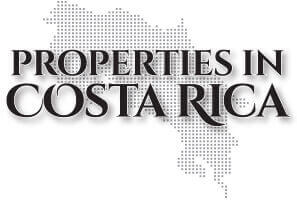
Purchasing Property in Costa Rica
June 12, 2015
Properties in Costa Rica
The recession is officially over in the United States and economies are picking up. More foreign buyers are turning their attention to Costa Rica to purchase property. Both European and American buyers are attracted to this Latin American country known for its high quality of life. Costa Rica’s stable economy and government, as well as near perfect weather makes it popular among foreign buyers. Today, second homes are more than a place to retreat for a vacation they are also a smart investment opportunity. People with large cash reserves are turning their attention to real estate as an alternative investment opportunity to diversify their portfolios. There are few countries in the world as friendly to foreign buyers as Costa Rica. The country grants foreigners the same property rights to non-citizens as citizens.
The real estate market is predominantly cash based here and therefore stable. Unlike the US, there is little threat of a major real estate crash because there is very little debt financing involved in the market. Year round great weather at a fraction of the price of comparable beach communities in the US or places such as the South of France makes purchasing property in Costa Rica a very attractive option for many foreign buyers.
The steps to purchasing property in Costa Rica are fairly straightforward. First, it is critical to check the chain of title through the National Registry and verify ownership rights. In Costa Rica, there is a large of amount of untitled land and concession property, which is not privately held. While it is possible to possess property not held under a title, it does not grant ownership rights. Most foreign buyers want to avoid concession and untitled property because of the risk involved in taking possession without a title.
Once you are ready to make a purchase, you begin the process through an option purchase agreement or promissory note, which is notarised. At this point in the process, you do all the necessary legal research and due diligence on the property including checking the title, borders and boundaries. Once the research is completed, a conveyance deed is drafted up. This document transfers the ownership title to the new owner. Next the notary public must register the property with the National Registry. It is the last and vital step in purchasing property in Costa Rica. Ownership is not officially transferred until the title appears in the National Registry.
Choosing a reputable notary public is critical in ensuring a smooth transition of property ownership. Once the conveyance deed is recorded, the owner or a representative must declare the property with the local municipality for tax purposes. When purchasing property in Costa Rica as a foreigner, it is not essential to be in the country. An attorney can also represent you. When it comes time to select someone to represent your interests in purchasing property in Costa Rica, research and do your due diligence. Working with reputable individuals who not only possess expertise in the real estate market but also have strong relationships with the local culture and municipalities will help streamline the entire process.
